“What unknown capacities are unveiled by 2020 and the pandemic and what happens because of them?”
Some of our team members convened around this question from adrienne maree brown‘s pandemic writing prompt series in May 2020 (watch her read-aloud response here). adrienne is the author of Emergent Strategy: Making Change, Shaping Worlds, a certified doula, and a Black feminist, and anchors much of her writing in the teachings of Octavia Butler. Her prompt does not ask the writer to bring a brighter perspective to the trials of this year. It does, however, suggest that despite all of the difficulty and pain we’ve experienced, we are still left with something real to move forward into the future with.
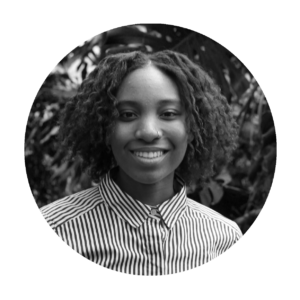
Nybria Acklin, Associate, DEI
Disclaimer:
I am sharing this with a caveat that my reflection is mine alone and, therefore what I speak to may not be relatable or even accessible for all those reading. Given this, I hope that you understand, my attempt to share my thoughts with you cannot and will not capture or encompass the full and multifaceted experiences of all those affected by the COVID-19 pandemic.
Thanks.
Reflection:
I did not know I had limits before the pandemic. Limits for work, limits for play, limits for…just about anything. The pandemic unveiled those limits for me to see and understand more clearly. My “Self” is helping myself place much-needed boundaries during the most unprecedented time that I have ever experienced. And, it’s been perfect timing. Since the start of the pandemic, I’ve learned that life “happens!?” Who would have thought that it was okay to cancel or reschedule an internal team meeting, or ask a teammate to cover for you for a client call before the pandemic? Now that life is “happening” to all of us and those “happenings” are more accepted, I wonder, why hasn’t boundary setting and limit making not been the norm all along? I thought that I was someone who had perfect time management, or someone who didn’t have to take breaks, or have super high capacity – welp, I don’t really know that someone any more… she left back in March 2020 – and now that I understand that that is not me anymore, or, even ever was me, I get that that is totally fine.
What has happened now that I’ve unveiled my limits is I must face the responsibility and discipline of treating myself well; doing a deep dive into better work/life boundaries; reminding myself to take breaks; honoring my interests outside of my professional life. My “Self” is helping myself learn that my health and well-being are important.
I ask: What is more important than health? What is more important than “us”? Without “us” there would be no work, no play, or anything to establish limits or boundaries for. We need us. Because of the pandemic, our health is now a national safety concern. What if our health outside of a global pandemic were always a national safety concern? What if we – our “selves” – were able to unveil our limits and honor them accordingly?
__
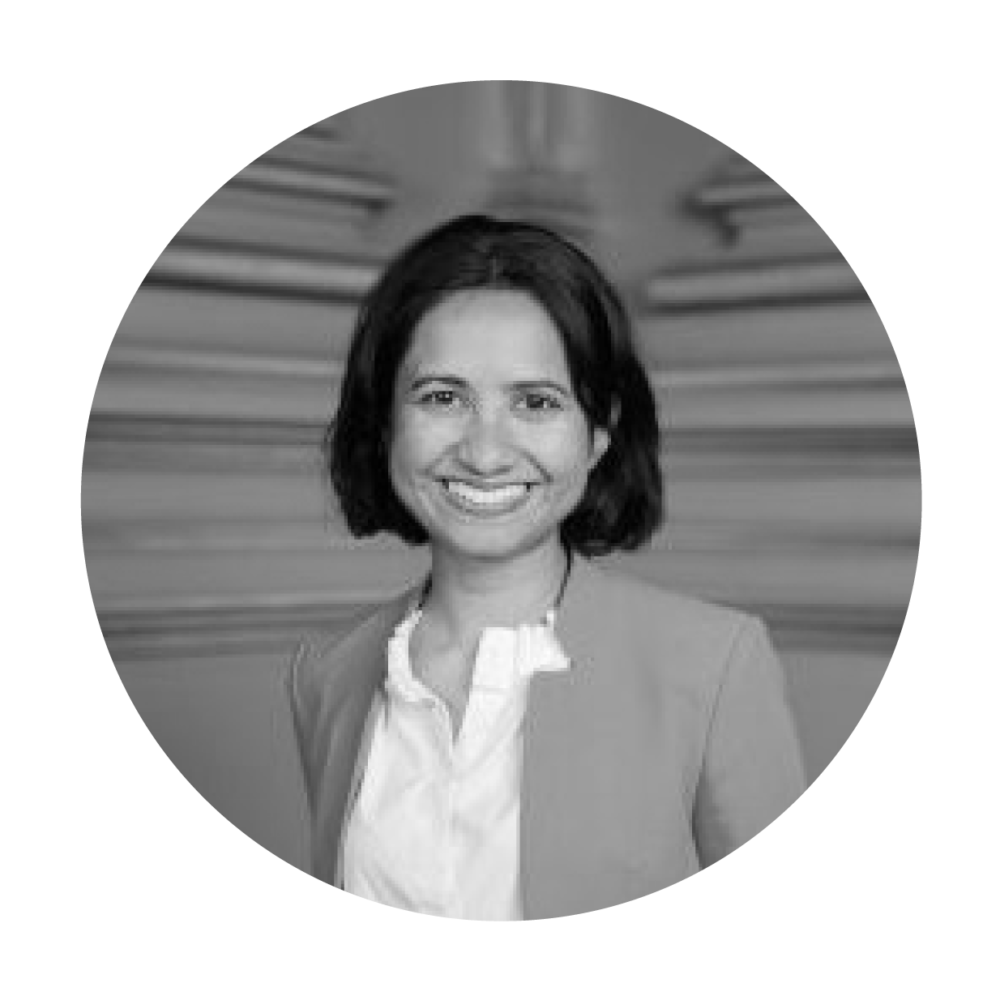
Leona Christy, CEO
In a year when so much and so many were taken away from us, we learned to find solace and meaning in what remained.
When the world shut down in spring, we uncovered new capacities in ourselves and our provider network. Faced with uncertainty, we created the Roadmap for School Restart to provide clarity to school and system leaders. To ensure they received hands-on support, we launched the Resilient Schools Fund. We learned how to quickly mobilize resources and allocate them efficiently and equitably during times of crisis.
As our worlds shrunk to fit within the four walls of our homes, we leaned into our power as a collective. The providers in our network fanned out to support leaders and teams across the country, then convened to collaborate with and learn from each other, cross-pollinating ideas and creating powerful solutions for the sector. We learned how to listen to them, support them, and invite them to be co-creators with us in our work.
As we distanced ourselves physically from each other as a team, we grew closer and more attuned to one another. We learned to read the expressions that flitted across our zoom screens, listen for the cadences in voices, sense the emotions revealed by our slack messages. We learned when we needed to step up and when we needed to give space.
When our hearts broke at the killings of George Floyd, Breonna Taylor, Ahmaud Arbery and so many more, our call to action grew louder and more urgent. It wasn’t enough to be a diverse, inclusive, and equitable team – we needed to interrogate our own model, speak truth to power, break old racist structures and create new equitable ones. We stepped up our work to support entrepreneurs and leaders of color, and incubated the Arc Collaborative to champion providers of color. In 2021, we will be launching our Equitable Marketplaces initiative.
In a year when the world broke down, and the old rules no longer applied, we gained the courage to take apart our work and reimagine it. We learned to become the creators of the future we seek to inhabit.
__
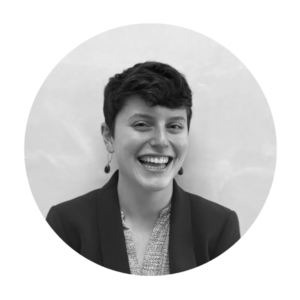
Laurel Greilich, Senior Associate, Organizational Learning
Most times for the better, when I engage with the world and my broader community, it helps me metabolize the pain, grief, and perplexity wrought by life’s rollercoaster, and my personal challenges. What happens when our community-based coping mechanisms aren’t available to us?
For me, reflections on my role as a community member have bubbled to the surface. The pandemic period has rendered away some of the noise that often separates me from self awareness. During this time, I’ve realized that many of the ways I hoped to show up for folks in my neighborhood, my organizing community, my coworkers, my friends, and family were hopes for personal achievement, and potential levers for self-judgement, disguised as healthy devotion.
One situation that pushed my thinking on this considerably was the strain I felt between showing up for my coworkers and the extended network at Catalyst:Ed by following through on my commitments, and supporting frequent civil rights protests from April-June 2020. For a few weeks, I ran myself down by working all day, running off to cart around supplies and people during protests on a pedicab (a bike taxi/bicycle rickshaw) with a group, and not sleeping enough. My work was slipping because I was exhausted and distracted, and I wasn’t leaving the capacity to support my closest teammate, who was going through several heart-wrenching experiences at the time. I felt irritable and apocalyptic. Burning the candle at both ends was not sustainable, and ultimately not the way I could best support people around me.
I realized I was participating in the protests in the way that I wanted to – and not in a way that acknowledged my wellness or even the current reality of community needs. With my pedicab, I was able to carry things that weighed others down, provide an avenue for tired folks or children to keep participating, and carry emergency medical supplies for medics. However, other community members had heard the needs of protestors, and came out with better, more widely available solutions. Car trunks filled with free snacks and water were available at every stopping point, and medics were attaching large bags of supplies to their own bikes. Once they had heard about the efforts of our original group of bike taxi riders, other pedicabbers with more time were available to man the bikes to carry protestors. Ultimately, I was holding on to a position that would make me feel integral in the fight. This was something I needed, not anyone else. I finally put together that the intense pressure I was feeling to show up as an anti-racist community member had roots in white exceptionalism, white saviorism, and the incorrect notion that self-sacrifice is altruistic. When I deprived myself of rest, of time to process and be, nobody benefitted more than my ego.
For me, this year has unveiled that giving myself what I need to function as a healthy human being, and drawing boundaries around those needs, has effects on my community too. Identifying and pushing back on the internal voices that vilify this as an indulgence help fight the creeping ways that white supremacist narratives can guide my behavior and dehumanize myself and others.
__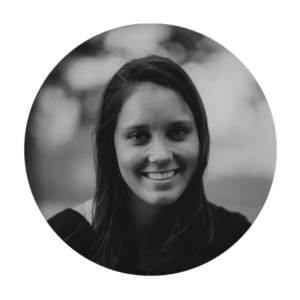
Ivy McKee, Associate, Strategic Initiatives
As a survivor of intimate partner violence who is experiencing the pandemic, feelings of isolation have been particularly challenging. Healthy relationship skills have been paramount in my navigation of a new set of circumstances. This is one of the reasons why I am a passionate advocate for consent, relationship, and sex education for students, their families, and community members more broadly. Comprehensive sex education that includes consent and relationship skill-building can help students nurture healthy relationships beyond romantic partners, including with professional and community contacts and even strangers. This year many people further explored how to set and respect the boundaries of others; identify, communicate, and uplift needs; allocate resources; listen to and trust experiences; and build community connections. These are key aspects of creating and maintaining healthy relationships. Through the transition to virtual engagement, many educators have continued to learn about the importance of our interconnectedness with families, students, and each other. Schools and districts can support the development of healthy relationship skills for educators and students through a range of programs including targeted professional development, SEL curricula, and comprehensive sex ed syllabi. As we prioritize, teach, and demonstrate value in our ability to connect to, communicate with, and honor the needs of ourselves and others; we prepare students to lead and be members of communities that develop thoughtful solutions and support systems. I am hopeful that through reflection, we are encouraged to learn about and develop healthy relationship skills alongside students as we pursue a holistic approach to education.
__
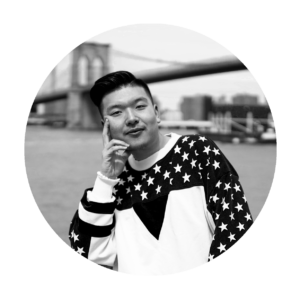
Colin Liu, Associate, Research + Impact
So will we just digress back to our pre-pandemic lives when this is all sorted out? But I started eating more greens and exercising more these past months–I feel healthier, mentally and physically. My father told me he quit smoking since the pandemic started. These are incredible milestones that both of us have always considered reaching.. but never have we been so committed.
Previous to the pandemic, I was just getting used to my newfound routine in New Orleans (I moved here for Catalyst:Ed, my first full time job). I guess the most important lesson that these last few months have taught me is to be comfortable with wherever you are, but that does not mean to settle. This is especially important in the field of education, where so often change feels stagnant. But changes will take time.
Yet the pandemic can be the uprooting sign for greater change to come if we want it to be.
Some of society’s greatest inequities have been brought to the forefront of our minds, our interpersonal and societal functions, and all of the work we do, in education and beyond. This is an opportune moment to commit to social change at greater lengths than before.
It can start as small or as grand as you want, but if we all take a little step in the right direction, we will be one step closer. So act upon that desire to make a difference, whether that’s in your own life or somebody else’s. Let’s focus on today so that tomorrow is better — maybe then, the day after would be even more so.
